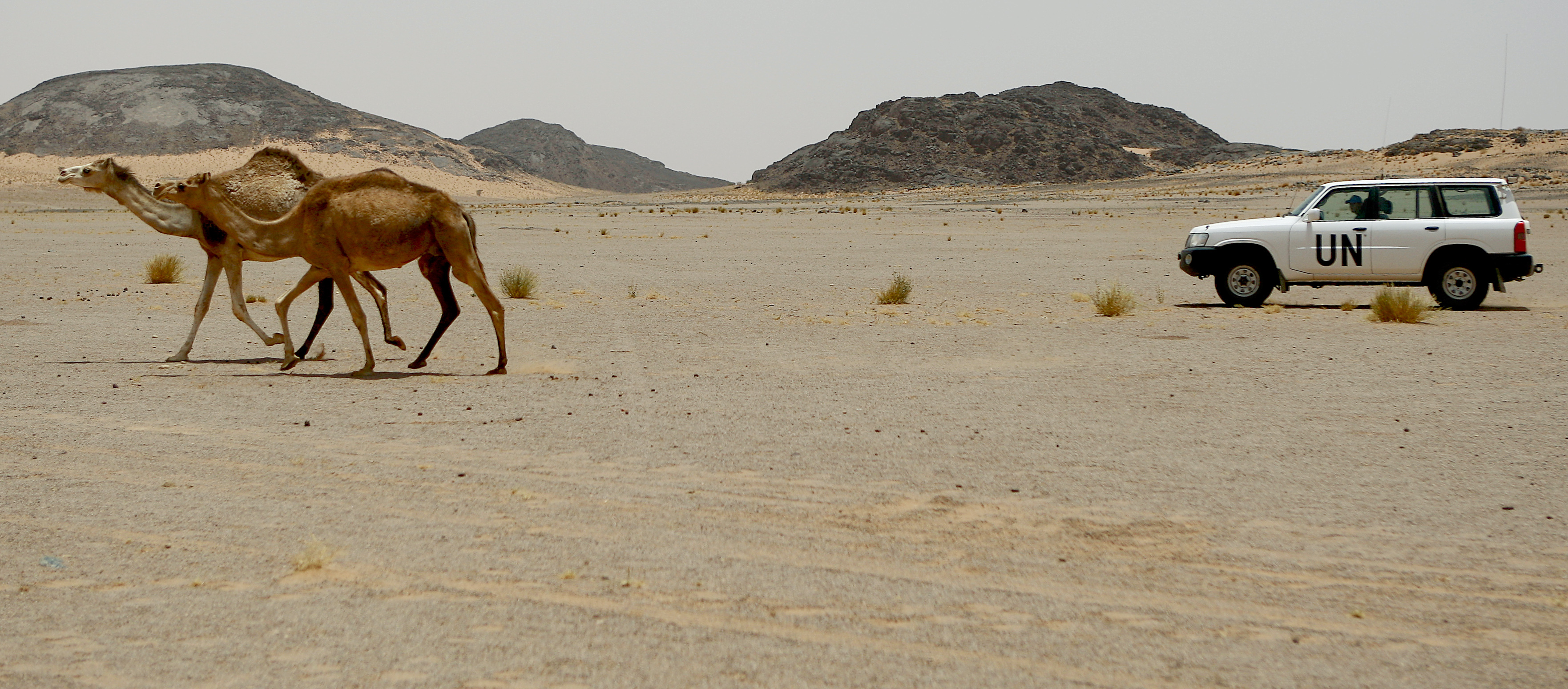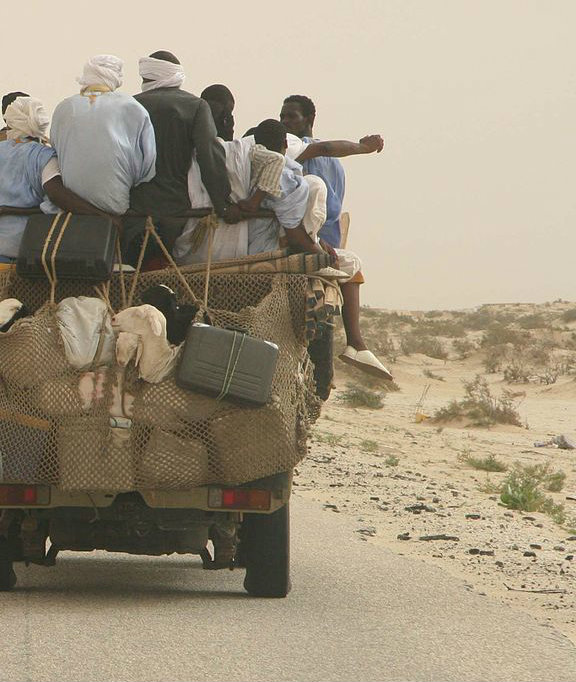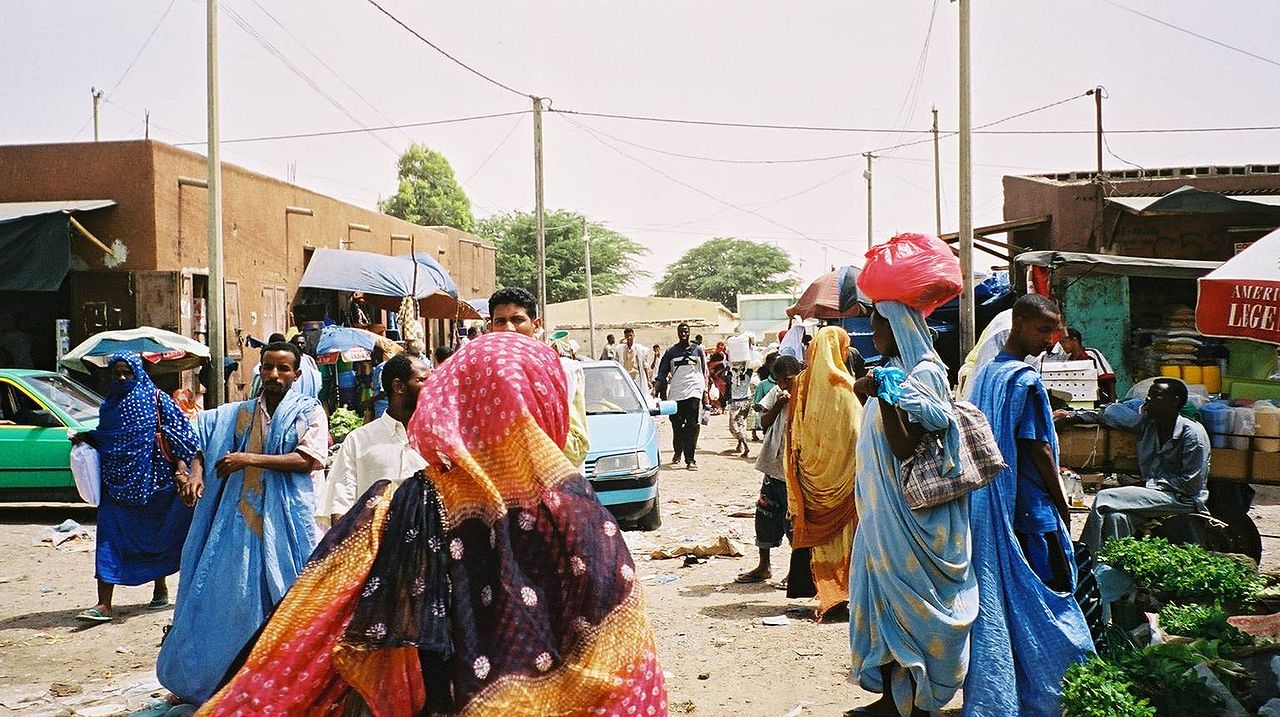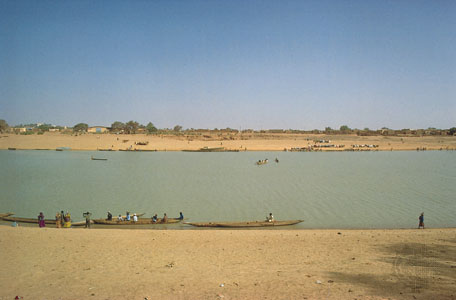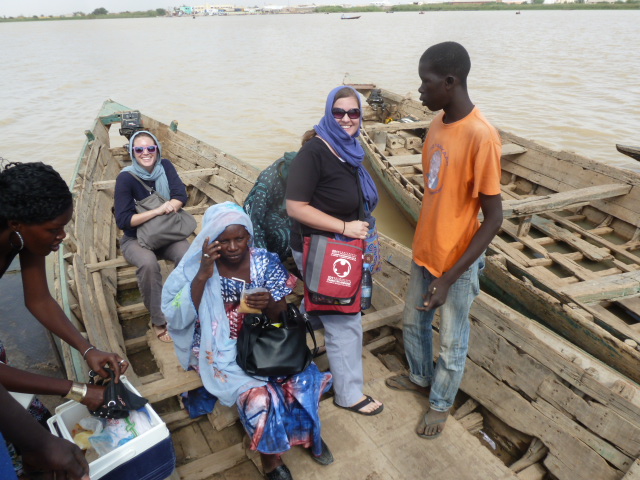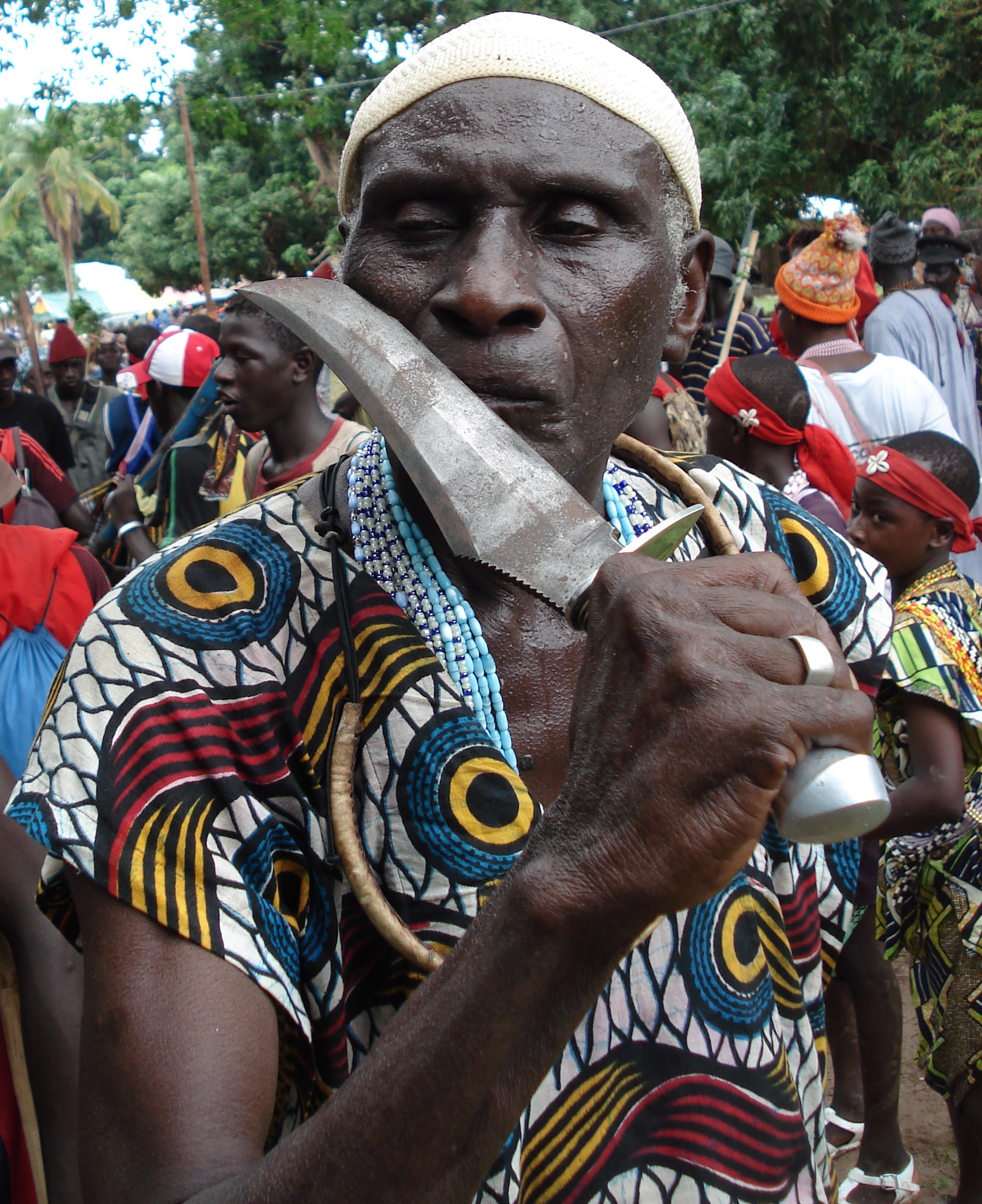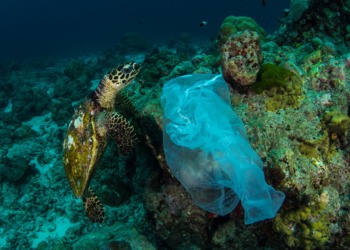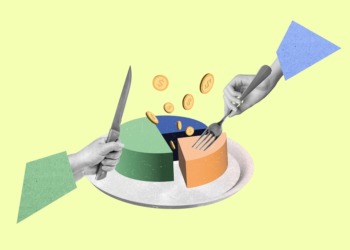My (Adventurous) Life at the United Nations: First Mission, Mauritania
October 1980. The sky is an intense blue over Mauritania’s desert, the Land Rover bumps along, skidding from one pothole to the next. Dust permanently dries the mouth, the blazing light hurts the eyes, I forgot my sunglasses in Rome, and there’s no place here to buy a pair; not today, not until we reach a semblance of a town. I look out hoping to spot a caravan of Berbers but there’s nothing to see except endless sand dunes and an occasional truck filled with dozens of people hanging on…
My thoughts drifted back to my family in Italy, my husband (we are newly married), my little daughter, she was only four months old. I missed him and her, taking consolation in the fact that she was probably too young to miss me.
We had left Mauritania’s capital city, Nouakchott, early in the morning. I write “we”, I was accompanied on this first mission by a 60 year-old Belgian agronomist, a veteran of Africa who’d been forced to leave his research station in the Belgian Congo back in 1960 when the country had achieved independence and become Zaire. A big and burly man with a stentorian voice, perennially dressed in military fatigues, he looked like a grandfather to me (I was a young woman then), with his white beard and permanent scowl.
I didn’t have pleasant memories of Nouakchott, poetically called the “place of winds” in Arabic; it is supposed to be the largest town in the Sahara. At the time, it didn’t look big to me, with just one central crossroads where the roads were paved, the rest, a sea of mud houses and tents pitched in the sand; all the streets, dusty and crowded, even the market looked poor, like this:
Our first two days in Nouakchott were spent meeting the local authorities at the Ministry of Agriculture to discuss the project on the Senegal river that we were to visit and evaluate. We’d even been to see the Minister himself in his vast office laid with precious oriental rugs; he had impressed me, he looked exactly like a sheikh out of a Lawrence of Arabia film. He was tall and thin, with piercing black eyes and nervously walked around in his elegant, flowing robe, hammering on the need to solve the country’s agricultural problem: the Senegal river provided year-round water, there was no reason why Mauritania could not produce crops twice a year.
At night, we’d returned to the town’s single hotel (now there’s choice, back then there wasn’t, not even a decent restaurant). The hotel was a small, run-down place, maybe twenty rooms on two floors with no air conditioning, and a central courtyard, the only cool place where you could have a cup of tea. The courtyard featured nice potted plants but it was crisscrossed by running mice. A couple nearly knocked me off my chair as I tried to sip the burning liquid – or so it seemed (I hate mice).
My companion told me that tonight, when we’d arrive in the old town of Kaedi on the Senegal river, we wouldn’t stay in a hotel but at a United Nations encampment, in modern bungalows set in a pleasant tree grove along the Senegal River and surrounded by military barbed wires. He was right about the cleanliness and modernity, but when I tried to take a walk after dinner, to enjoy the night and the stars, he stopped me: “Don’t, there are pythons in the trees, they drop down on people who walk by…” I don’t know whether there really were any, maybe he was exaggerating, but I took no chances and retired early to bed.
As to the sunglasses, I did find them in an amazing store held by an old Lebanese. It looked more like a cabinet of curiosities than a shop – a ramshackle, filthy, dark Alibaba cave filled with tottering piles of goods, often unidentifiable objects, and he had everything, from sunglasses and Bayer aspirin to used paperback thrillers in French and English. The entrance looked something like this – the picture was taken by a recent traveler but such shops are eternal, this is exactly as I remember it:
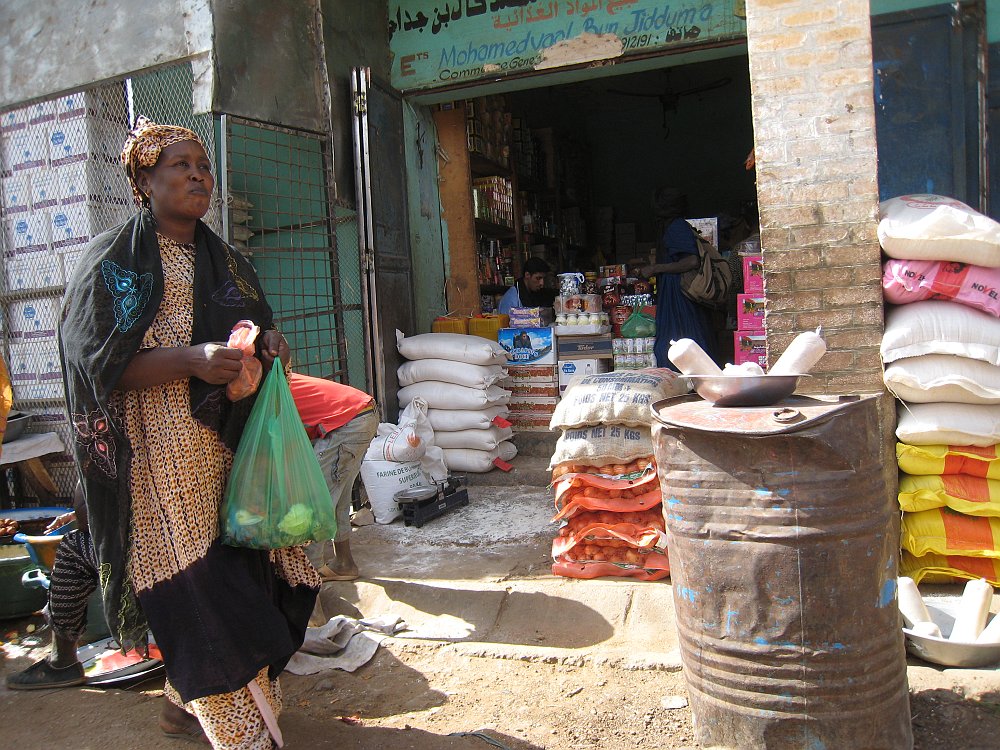 The next few days we visited the project and discovered why no activities had ever been started: the land provided by the government – as per the project contract, this was to be Mauritania’s contribution – was situated high up on a cliff, far above the river level. There was no way the planned nursery and experimental crops could ever be planted here without a massive investment in pumps to lift the water up. Unfortunately, there was no money in the project budget for this extra investment. Moreover, the idea of creating a model farm in a non-irrigated area did not seem appropriate; it could never become a sustainable model for local farmers to follow.
The next few days we visited the project and discovered why no activities had ever been started: the land provided by the government – as per the project contract, this was to be Mauritania’s contribution – was situated high up on a cliff, far above the river level. There was no way the planned nursery and experimental crops could ever be planted here without a massive investment in pumps to lift the water up. Unfortunately, there was no money in the project budget for this extra investment. Moreover, the idea of creating a model farm in a non-irrigated area did not seem appropriate; it could never become a sustainable model for local farmers to follow.
We did try to save the project, visiting experimental stations in Senegal to figure out how they’d done it (it turned out they were all at river level). This required an unplanned crossing of the river into Senegal – a majestic river with no bridges:
Incredibly, we managed to cross over, placing the Land Rover on two pirogues, like the ones shown above, and dragging the car across the river with the use of strong ropes. I watched the maneuver, wishing I had a camera to record it – but back in those pre-Instagram days, nobody traveled around with a camera (unless you were a Japanese tourist).
All I have now is this fantastic memory of the car being slowly rolled onto two separate pirogues that weren’t even tied together, and floated across the river, as if by magic. I watched mesmerized from the safety of another (car-less) pirogue.
As I write this, I did a Google search to see if anyone else had had the same adventure crossing the river and could find no trace of it – except that crossing the Senegal is still done in pirogues today just like the one I took, as reported by one blogger:
Once on the other side, our troubles weren’t over. As we drove slowly, stuck to a narrow trail winding its way through river eddies, we were suddenly stopped by a man brandishing a machete. He wanted us to pay for the passage – my companion, looking calm and composed, negotiated for what seemed to me a very long time, calling him “Chef” over and over again; in the end, he obtained our laissez-passer for a mere 25 dollars. I wish I had a picture of this menacing man, he is still vividly etched in my memory; again, a Google search revealed someone similar (though older):
After our trip through Senegal we returned to discuss the project with the authorities in Nouakchott. It soon became apparent that providing a better, river-level piece of land was politically impossible; all low-lying lands along the river were immensely valuable to local farmers and nobody could ever be convinced to give up a piece of it – not even small enough for a nursery and an experimental field; add to that the political problem of different ethnic groups, the government being constituted of Moors while the farmers along the river were all black, most of them Wolof.
In short, the project was dead before it began – this, my first project evaluation led to the official closure of the project, a sad, if unavoidable outcome. I should add that this was the only project I ever closed in my 20 years as a project evaluation officer. Most projects I visited had problems – that was often the point of an evaluation: solve the problems. With a little effort and goodwill between all the contracting parties, the projects could usually be saved and went on to achieve their goals. This one couldn’t – of course, as an agricultural project, it did lack a fundamental input: land…


